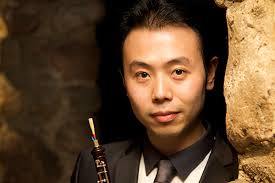Free downloads – a paradox
mainThe City of London Festival is putting on a Winter Series of free concerts (details below).
Free
Winter Concert series listings
19
January – 30 March 2011

This
series is part of the City of London Corporation’s ongoing celebration of arts
in the City. Enjoy Tuesday and Wednesday free lunchtime concerts with the City
of London Festival, City Music Society and City of London Sinfonia.
All concerts 1.05 – 1.55pm and free of charge
For more information please visit www.colf.org
19 January, St Mary
Aldermary, Watling Street, EC2, Sam
Carter ‘The finest English-style fingerpicking guitarist of his generation’
Jon Boden
25 January, St Botolph’s
Bishopsgate, EC2, David Owen Norris (piano),
Haydn Sonata in E flat H.XVI.28, Beethoven Sonata in C sharp minor Op 27 No 2 Moonlight, Mendelssohn Songs without Words
2 February, St Andrew,
Holborn, EC4, City of London Sinfonia, Robert Salter (director), Sibelius Suite Champêtre, Haydn Symphony No 59 Fire, Grainger Folk Songs: Molly on the Shore, Irish
Tune from County Derry, Country
Gardens
9 February, St Bride’s,
Fleet Street, EC4, Helen Sherman mezzo (soprano), James Baillieu (piano), Clara
Schumann Songs Op 12: Er ist gekommen; Liebst
du um Schonheit; Warum willst du andre fragen?, Duparc L’invitation au Voyage; Chanson Triste; Au paye ou se fait la guerre;
Schreker Zwei Lieder Op 2, Brahms Zigeunerlieder Op 103, Grainger British
folk song settings: Died for Love; The
Sprig of Thyme; The Pretty Maid Milkin’ her Cow; The British Waterside
15 February, St
Botolph’s Bishopsgate, EC2, Duo Dorado, Hazel Brooks (baroque violin), David
Pollock (harpsichord), A Celebration of
Bach
23 February, St Anne
& St Agnes, Gresham Street, EC2, The City Musick
2 March, St Andrew,
Holborn, EC4, City of London Sinfonia, Jonathan Morton (director),
Arensky Variations
on a theme by Tchaikovsky, Tchaikovsky
Serenade for Strings
8 March, St
Botolph’s Bishopsgate, EC2, juice (vocal ensemble)
16 March, St
Lawrence Jewry, Gresham Street, EC2, Guildhall Alumni Jazz Ensemble
22 March, St
Botolph’s Bishopsgate, EC2, Navarra String Quartet, Bartholomew LaFollette (cello),
Schubert Quintet in C D956 Op posth 163
30 March, St Andrew,
Holborn, EC4, City of London Sinfonia, Dominic Wheeler (conductor), Michelle
Todd (soprano), Mozart Divertimento in D,
Delius Air and Dance, Stephen McNeff The Tale of Jemima Puddle-Duck, Vaughan
Williams Fantasia on Greensleeves
All information correct at time of printing.
For further information and images please contact:
Emily Caket
Marketing Manager
emily.caket@colf.org





Let’s say that you wish to put on a free concert containing copyright music. If you want to perform a copyright work in public in the UK, it is a legal requirement that the performance must be licensed by the PRS, which is de facto assumed to own or control the performing right in all such works. That legal requirement obtains regardless of whether the audience pays to listen to the performance or not. That is why shops, business premises, etc., which play music have to have PRS licenses even though their customers or staff are not paying to listen (indeed, may not even want to listen!). Of course, you might be able to rely on the venue’s own licence, or a concert promoter’s licence, but failing that, you would have to obtain your own. The fact that it were a free concert would make no difference.
If you were putting on a free opera performance of a copyright work, you certainly would have to obtain permission and negotiate a fee with the composer or, if he or she were to have one, his or her publisher.
Free downloads have an even wider set of rights owners to consider: the artists, the recording company (or whoever owns the rights in the recording itself), as well as any composer. Somehow, if they still own their rights, these people deserve to be remunerated for the use of their work. The same applies to free concerts.
Incidentally, a festival or concert promoter is never obligated to pay its performers, even when the audience has to pay for tickets. However, except under charitable circumstances, it will struggle to persuade significant performers to play without a fee… It seems to me likely that the same would be true for the COLF’s free concerts, and I;’d be very surprised if their performers are not getting paid.
The interesting disparity here is that the performer has upper hand over the promoter/festival/organization because there is a either a fee or there is no performance. Income is, thus, guaranteed on the terms agreed in the artist’s contract to play – it’s a normal commercial relationship. In the case of downloads, the artist and the other rights owners are more remote and find it very difficult to prevent the distribution of the recording. All the more reason for society and its legal provision s to provide suitable and robust protection to ensure that the rights of all the creators of the recording are properly protected.